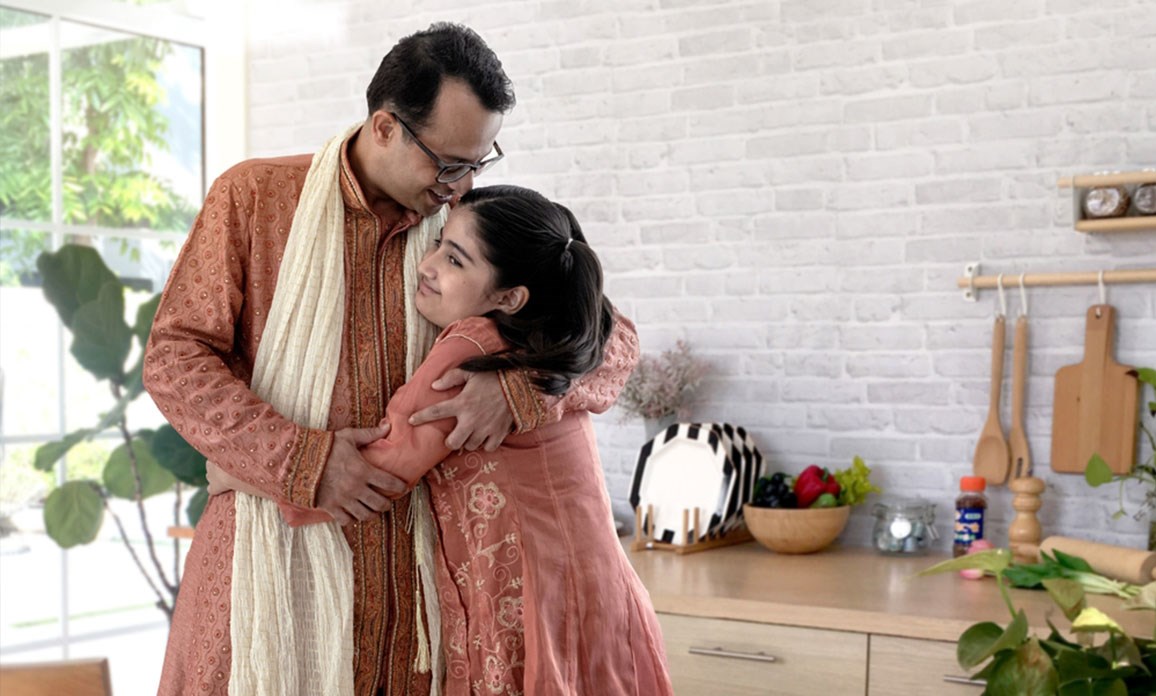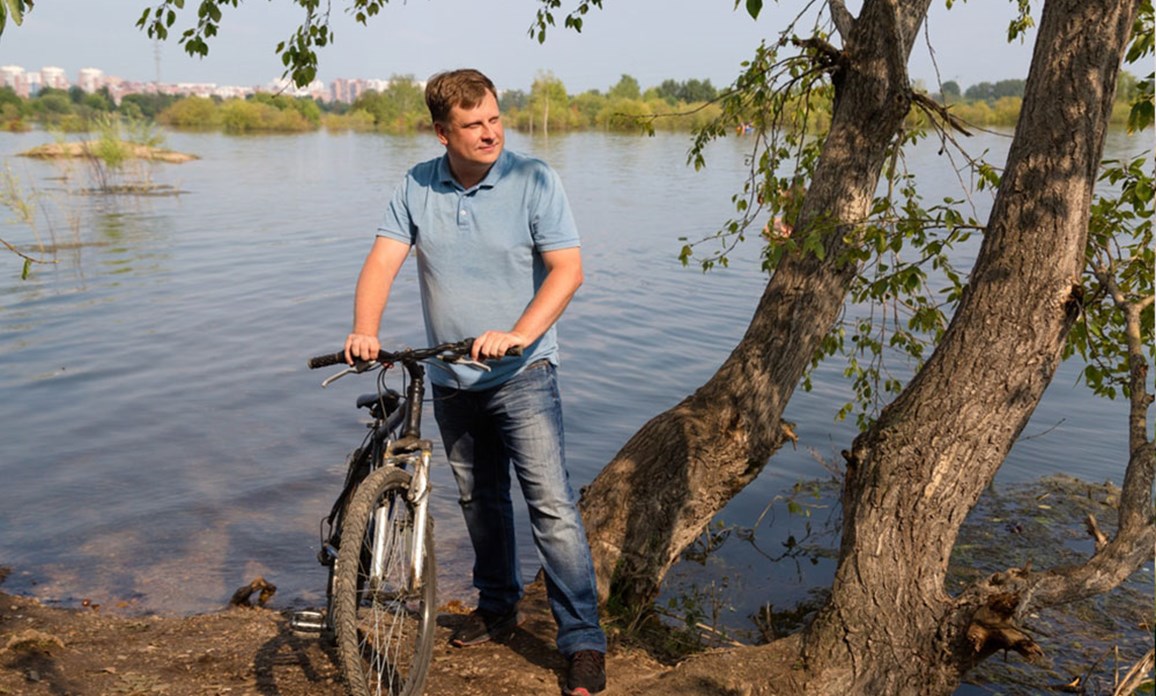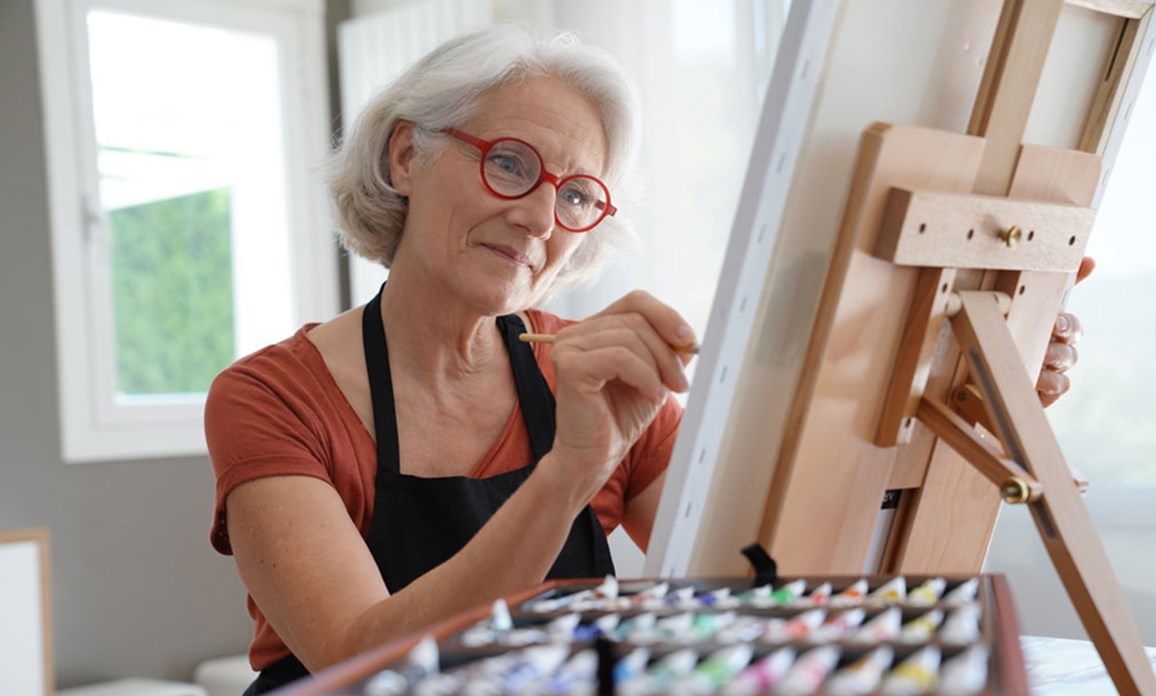Danny's Journey
So how do you break this kind of news to your family?
Telling my parents was surprisingly easy, maybe because they both have Parkinson’s so it didn’t come as a big surprise to them. It was equally easy with my wife, although I sometimes feel she is still in denial – she sees how active I am so maybe she thinks things won’t get very bad for me. It took longer to tell my extended family; at some point, you just get tired of talking about the illness, about your diagnosis, and just want to live your life. Yet at some point I just wanted to get it over and done with, get it out in the open. Hiding your disease takes a toll on you, both physically and mentally. It’s just not worth it – you have to save your strength for managing your condition, not spend it on trying to hide it from others.
Talking to my children about my condition is trickier since they are so young. My younger daughter probably has no recollection of me pre-diagnosis; my older son does remember that I used to be healthier, and there was a moment when he realized what was going on. That was tough for him to process. It helps to manage their expectations. I told my son: remember how I used to be able to do this cool trick with my bike? Well now I can’t. So he knows what to expect in the near future. It also helps them to communicate my condition to their classmates and to their classmates’ parents – they call it “that condition with the tremor”. The parents get it.
I have a group of close friends and we hang out quite a lot. I organized a cookout, and when everybody was there I said: I have some big news. They started joking around, asking if I was pregnant. Then I told them; they were speechless for a while. Then some of them came up to me and started telling me about their own challenges. It’s interesting how, when you tell people you have Parkinson’s, they open up to you about their own issues. I had to leave early that night, while my friends stayed around and kept talking about me and my Parkinson’s. I was relieved to have put this out in the open. No more hiding from my friends and family.
I also had to make adjustments at work. I work at my own business and, after a while, customers would start to notice – especially the regulars. They would ask me if everything was alright. At first I would tell them: Yes, I’ve fallen over, hurt my leg; after a while I simply said: I have Parkinson’s. It wasn’t a big deal. I keep making adjustments to how I work, I have shifted to less customer-facing work because I’ve noticed some customers struggle with the frozen facial expression. It’s a process. But it’s easier to go through it when you’re not pretending.

Parkinson’s community
At first I was reluctant to get involved with a Parkinson’s community. I didn’t want anything to do with it for the first two or three years following my diagnosis, until at some point I said: All right, this might be interesting. I reached out to a local Parkinson’s association and asked whether there was a group that I could join. There wasn’t at the time, but six months later they called me back and said that they had opened a new group and added me. My first meeting was the first time I had seen people in the same condition as mine. I wasn’t sure how I was going to feel – but it felt good. It’s nice to be able to sit down with another person with Parkinson’s and just talk about your condition, since you don’t need to first give them a whole background story. They already know.
My city only has one group for all ages, where most members are much older than I am. I try to attend as much as I can, but the age difference makes it hard. A person in their 40’s, who is still active, leads a very different life from a person in their 80’s who wouldn’t be moving as much even if they didn’t have Parkinson’s. You have different expectations from life, which leads to different challenges with your condition.
There is a lot going on in our WhatsApp groups. The younger group members love joking about Parkinson’s, so it’s great that we have our own WhatsApp group where we can share memes and jokes. The older patients don’t seem to appreciate our sense of humor. There’s something about being a patient yourself that gives you a sense of liberty in expressing yourself about your own condition. A friend once sent me a funny Parkinson’s meme and then felt bad about it because he wasn’t sure if I was okay with it. I said: Sure, don’t worry about it, and forwarded it to my Parkinson’s group. They loved it.
I know some people prefer to see a therapist. That’s not my style. It may be a cultural thing, your upbringing, I don’t know. I find more benefit in meeting people who are in the same situation as mine. Sure, everyone has their own journey, and some are more difficult than others, but in the end, every Parkinson’s patient goes through the same stages, the same processes, the same difficulties with friends and family. Spending time with other people who have Parkinson’s lets you open up more easily; you know that while you’re in that room, there is no more hiding. It’s liberating.
The individual(s) pictured are not the contributor of the story. Names have been changed to protect anonymity.








